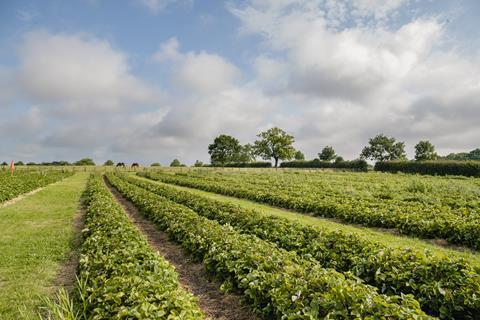Farming consortium calls for national food security plans from Defra | News

A consortium representing over 50 farming and food civil societies and businesses has called on the government to focus on accountability and transparency in the food sector.
The Consortium for Labelling for the Environment, Animal Welfare and Regenerative Farming is made up of businesses including the Soil Association, the Sustainable Food Trust and the Food, Farming and Countryside Commission.
It has welcomed the new secretary of state for Defra, Steve Reed, and has urged the government to commit to accountability and transparency measures that tackle national food security, accelerate the green economy, ensure the nation meets environmental and social commitments including net zero targets, and restore public trust.
Among its key asks is the introduction of mandatory method of production labelling to foster accountability and transparency.
CLEAR said the measure would empower consumers, drive corporate accountability and support policy in assisting the UK agriculture and food system to transition to a more sustainable and regenerative future.
It has also asked for labelling of precision-bred organisms, and claims the current proposals from the FSA fall short and risk consumer trust, creating complications across the supply chain.
“The British public really care about food and the impact it has on their health, animal welfare and the environment,” said Brendan Costelloe, policy and strategy director of the Soil Association. “They expect and deserve transparent, honest and accurate labelling.
“But citizens will continue to be deprived of that right if the shaping of labelling rules is dominated by a narrow range of corporate interests,” he added. “The government must listen to a diverse range of experts and ensure public interest is prioritised over profits.”
CLEAR has also flagged concerns around the absence of voices representing agroecological food production at the Food Data Transparency Partnership, which it described as “alarming” and could risk enabling the industry to mark its own homework.
With that in mind, the organisation has called on the government to ensure the FDTP membership represents a diverse and balanced input from across industry and third-sector representatives, including those who produce our own food.
“We are encouraged by what we are hearing from the new government and hope they can seize the opportunity to bring transformative change to our food system,” said Fidelity Weston, chair of CLEAR. “If the FDTP is the chosen vehicle for achieving this, it is crucial that all sectors and representatives of the food and farming industry are represented around the table.
“CLEAR is well placed to bring together the expertise within its 50-plus-strong consortium in one voice that will support the transition to agroecological farming and food production,” she added.
Leave a Reply Cancel reply
- Trending
- Comments
- Latest
Stocks making the biggest moves midday: IONQ, WFC, BK
Here’s the inflation breakdown for December 2024 â in one chart
Stocks making the biggest moves premarket: GS, WFC, RGTI META
TTMiles
Travel with me and experience each trip as a magical chapter in my travelogues. Come along with me as we discover the marvels of the globe one engrossing tale at a time.
Read more
Categories
Recent News
© 2024 Trilliontravelmiles - The one stope travel news site by Trilliontravelmiles.















































